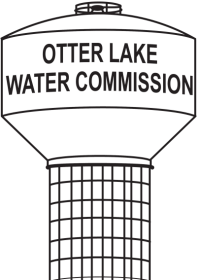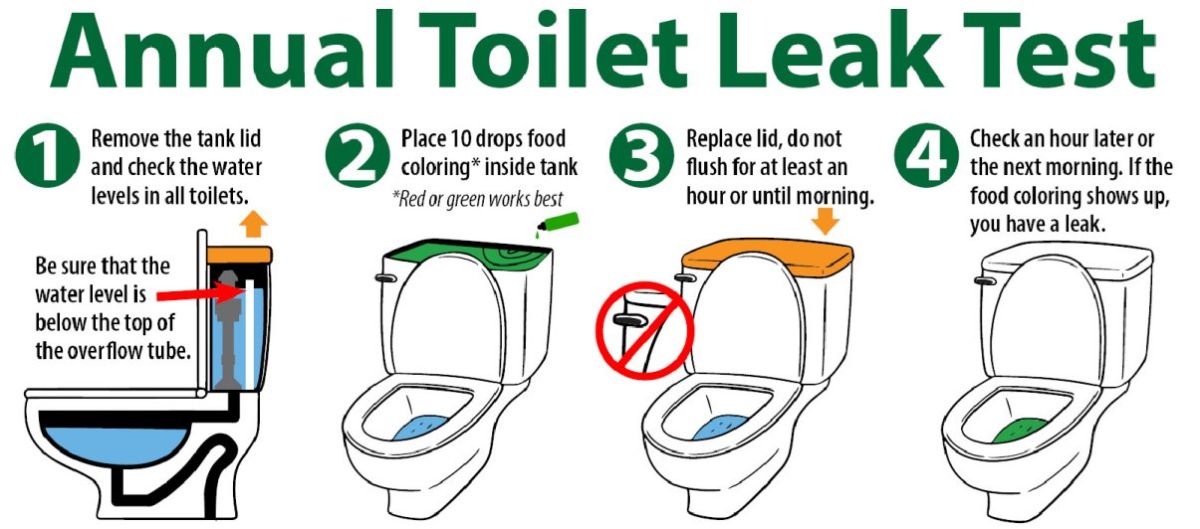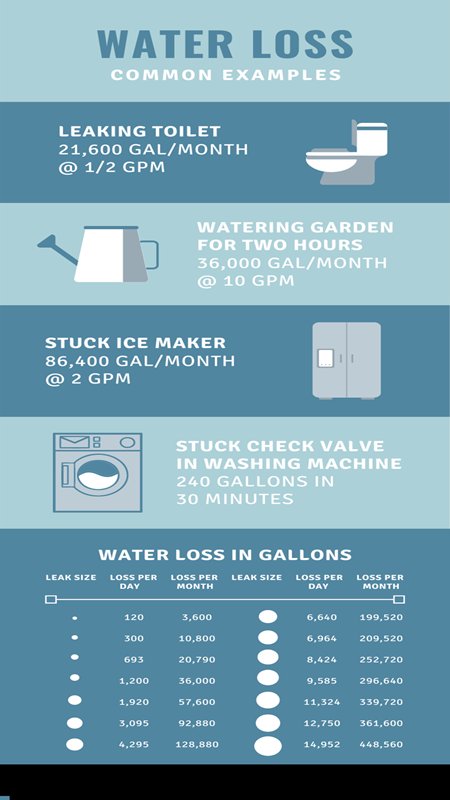To serve you better, we've assembled a list of our customers' most frequently asked questions. If you don't find your answer here, feel free to contact us.
Who is considered an Otter Lake Water Commission customer?
Otter Lake Water Commission is the whoelsale water supplier to several area towns and water districts which include Auburn, Divernon, Girard, Pawnee, Thayer, Virden, Nilwood, Tovey, South Palmyra Rural Water District and Henderson Water District. Each town or water district is responsible for their own individual customers. You are an Otter Lake Water Commission customer if you pay your utility bill directly to us. We contract bill for the Village of Nilwood, Village of Thayer, and Village of Tovey - these customers are still considered Nilwood's, Thayer's, and Tovey's customers even though you pay your bill to our office. If you are unsure if you are an Otter Lake Water Commission customer please call our office prior to paying your bill.
How could I have used this much water?
You could possibly have a leaky toilet or faucet that's difficult to detect. Just call the office and we'll work with you to solve the problem. (Leaking Toilet Information)
Many of our meters record the amount of flow moving through the meter. We are able to download this information telling exactly how much water went through your meter each hour.
Can I get an adjustment for my leak?
The Otter Lake Water Commission has a leak adjustment policy. You have to have usage over 4 times your average and the leak must be fixed within 30 days to qualify for any adjustment. (Leak Adjustment Policy)
What do I do if I am experiencing low pressure?
Check your meter and the surrounding area for possible leaks. Next, call our office and report low pressure for your area.
What does a boil order mean?
A boil order means that residents in the affected area(s) are advised to boil their water for 3 to 5 minutes prior to drinking or cooking with it. This is a precautionary measure for residents' protection.
Boil orders are issued when there is an interruption in water flow due to a water main break, required maintenance, or any time the water pressure drops below 20 p.s.i. Boil order notices are communicated through our website and an automated phone call system. Make sure you sign up for website alerts and we have an accurate phone # on your customer account.
Why is my water discolored?
A repair could have been completed recently allowing air to enter the line, causing the milky look.
Why does my tap water look cloudy this winter?
Question: The hot and cold water from our sink sometimes comes out very cloudy. If we leave the water in the glass, it then clears up quickly and the cloudiness disappears. Should we be using this water, even after it turns clear?
Answer: Cloudy water, also known as white water, is caused by air bubbles in the water. It is completely harmless. It usually happens when it is very cold outside because the solubility of air in water increases as water pressure increases and/or water temperature decreases. Cold water holds more air than warm water. In the winter, water travels from the lake which is very cold and warms up during its travel to your tap. The air that is present is no longer soluble, and comes out of solution. In addition, once water from our lake enters the transmission and distribution pipes, the water is pressurized. Water under pressure holds more air than water that is not pressurized. Once the water comes out of your tap, the water is no longer under pressure and the air comes out of solution as bubbles (similar to a carbonated soft drink). The best thing to do is let it sit in an open container until the bubbles naturally disappear.
What chemicals does our utility district add to the water?
Only chemicals that are approved by the National Safety Foundation for treatment of drinking water.
My water tastes, looks, and smells funny. Is it safe to drink?
All public water systems are required to maintain a minimum chlorine level of 0.5 mg/L (tested at the end of each line) by state law. Systems that use chloramine as a disinfectant must maintain a level of 1.0 mg/L by state law. Our disinfectant levels are tested daily to ensure safety.
Why does debris come out of the faucet when running hot water?
Most likely your water heater needs to be flushed. CAUTION: Most manufacturers recommend hiring a professional to flush your water heater. If you plan on doing this yourself, read the owner's manual to keep from being hurt and or damaging the water heater.
Why do I have a previous balance when I know I sent in my payment?
We may have received it after the due date or we may not have received it at all. If you made a payment online through your bank or financial institution it is not debited to your account automatically, they still have to mail us a payment on your behalf. Call our office and we will help you solve the problem.
Do you offer tours of your water treatment plant?
Yes! We are happy to schedule tours of the water treatment plant for groups or individuals. Give us a call at (217) 965-1566 to arrange a tour.
What is the average usage of water per person?
The average person's daily water consumption is estimated to be 80 - 100 gallons per day, largely attributable to faucets, toilets, showers and washing machines. However, the amount of water an indvidual or family uses can vary depending on several factors, including: lifestyle, household size, water conservation habits, appliances used.



